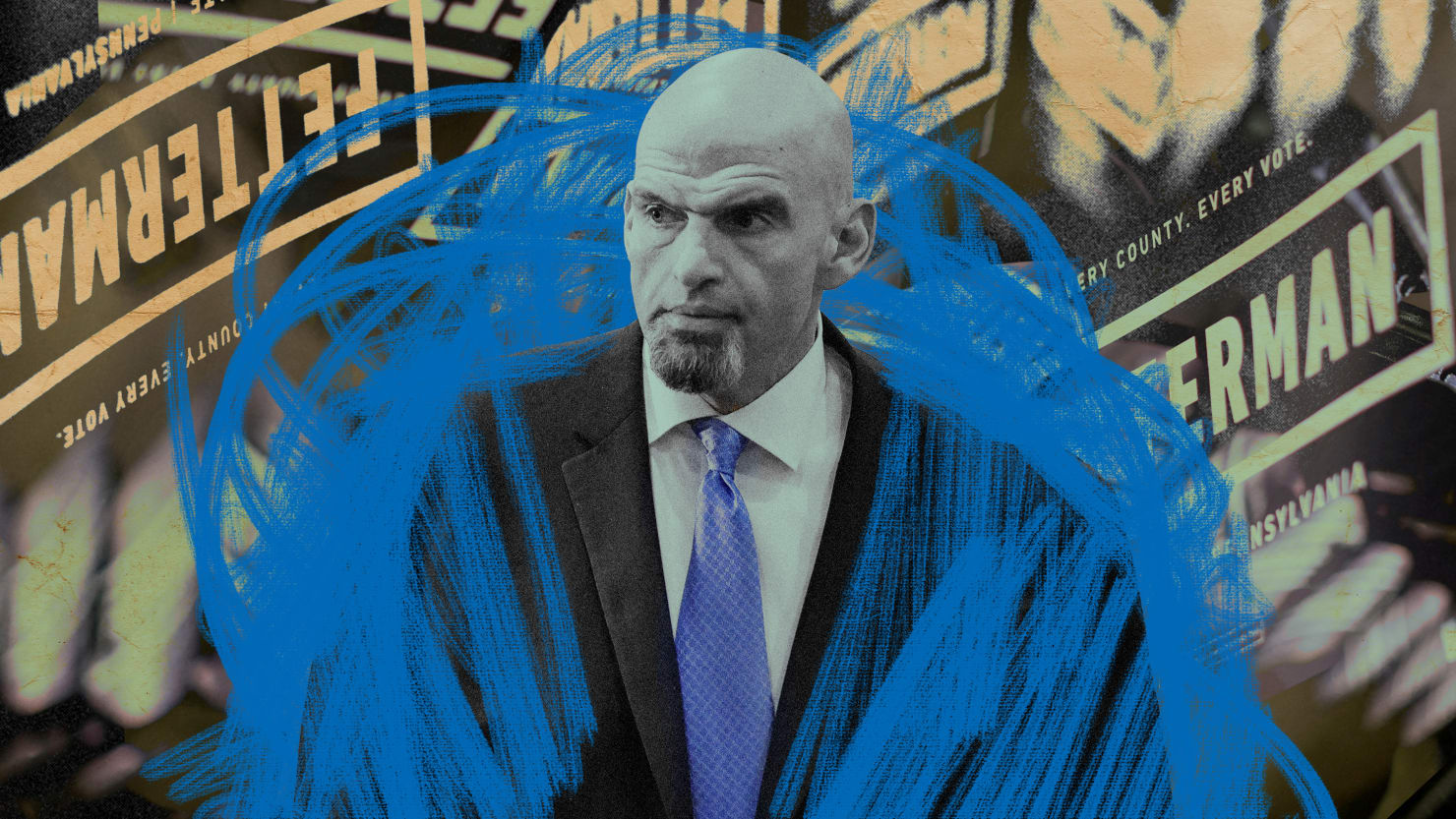There is a school of thought that says that whatever is going on with Sen. John Fetterman—both his physical well-being and his mental health, following a stroke in May of last year—is a private matter between him and his doctors. It’s no one else’s business.
And so, the argument goes, Americans should mind their manners and stop speculating about whether the newly sworn-in Pennsylvania senator can continue to serve out his six-year term, and what it would mean for the delicate balance of power in the Senate if the answer is “no.”
But there is also a counterargument that says elected leaders surrender at least some of their right to privacy when they ask the public to put its trust in them. And so, Fetterman’s health and long-term prospects for recovery are most certainly the business of the nearly 13 million residents of the Keystone State. Furthermore, this line of thinking suggests, the question of whether Fetterman can go the distance impacts all Americans because it could affect which party controls the Senate.
The 48 Democrats in the upper chamber are holding onto control by a thread, thanks in large part to the three independents who caucus with them. The 49 Republicans are in the minority. But this could easily change in 2024.
But when I think about Fetterman’s health—something I’ve done often since the senator checked himself into Walter Reed National Military Medical Center on Feb. 16 to be treated for clinical depression, after being hospitalized the week before for lightheadedness—I don’t think about politics or the Senate.
Instead, I think about three things.
First, I think about what my mother told me my whole life about how our health is the most important thing, and how our bodies will have the final say about what we can do and when we can do it.
It seems obvious that Fetterman’s body would like to have a word. The senator admits that—since his stroke occurred in the middle of a campaign—he rushed the rehabilitation process and skipped steps that may have been necessary in order for a stroke patient to make a full recovery. Some of the damage done by the stroke was already known to the public. Fetterman’s staff have acknowledged that the senator now has “audio processing issues” that necessitate the use of closed caption devices at his desk and in committee hearings.
Next, I think about how Fetterman severely endangered his own health—and maybe even shortened his life span—because he and his political handlers were convinced that, if he didn’t get back out on the campaign trail, his Senate race would be over. That’s a high price to pay for political ambition. After all, there is always another election and another campaign. But we only get one life.
One of the things we ostensibly look for in our elected officials is good judgment. Fetterman’s decision to put his own health at risk because he feared that Americans were too “ableist” to give him a fair shake if they believed him to be infirmed or incapacitated shows the opposite. He should have been honest with the voters of Pennsylvania, and just told them he needed time to recover properly so he was going to ease off the campaigning. He could have remained in the race—which was, at the time, for the Democratic nomination to run for the Senate seat—and invited voters along as he went through his recovery. Instead, he shortchanged his health and the voters.
And finally, I think about how the worst part of this story is the way in which Fetterman—by pretending everything was all right after his stroke—robbed America of a necessary conversation about what it means to be physically challenged. For millions of Americans, this is a fact of life.
By the way, I don’t like words such as “disabled” or “handicapped” because the implication is that a person is someone broken, damaged or incapable of performing even the most basic of tasks. Challenges can be overcome.
This topic is personal for me, which helps explain why I’m so disappointed in Fetterman and so frustrated by the poor decisions regarding his health.
I was physically challenged for a really long time, but unlike most people who can say that, I no longer am. How long? As far back as 2010, I recall that I had a limp on the right side. Eventually, I would learn that it was my hip, and that the joint had slowly deteriorated since a car accident many years earlier. I wasn’t in pain, but my mobility was severely limited. In 2022, 12 years later, I would finally get the total hip replacement that gave me my life back.
As I got around on a cane, I knew that I was but a tourist in this world. The things I saw—from the perspective of those who struggle every day to move, walk, get up from sitting, etc.—changed me forever. I knew that someday my life would go back to normal. So I took note of what I was experiencing. And I’ve listened to the stories of others who courageously face challenges much greater than mine. These are “my people,” and they always will be.
March is National Disabilities Awareness Month. But I have to wonder: How self-aware is John Fetterman? Is the senator a member of our club or not? Does he see the physically challenged as his people?
From what we’ve seen, he ought to. And if he’s embarrassed to admit that he’s one of those brave Americans who are constantly negotiating with their bodies as to what is possible, then I feel sorry for him.
A senior aide to Fetterman recently told the Wall Street Journal that his hospital stay could last more than a month as doctors test out new medications and treatments. The aide said that the senator will also undergo speech therapy.
Let’s hope he finds his voice. Before Fetterman ever walked onto the Senate floor, he had an important mission: to make Americans better people by humanizing the millions of people in this country who have some sort of physical limitations and, every single day, heroically strive to overcome them. After his stroke, he was in the perfect position to start a national conversation—an honest and candid dialogue about what human beings can accomplish even when their bodies fail them. Sadly, he cowered to ableism and squandered that opportunity.
That might be an exercise in self-preservation. But it’s not courage, and it’s not leadership.



